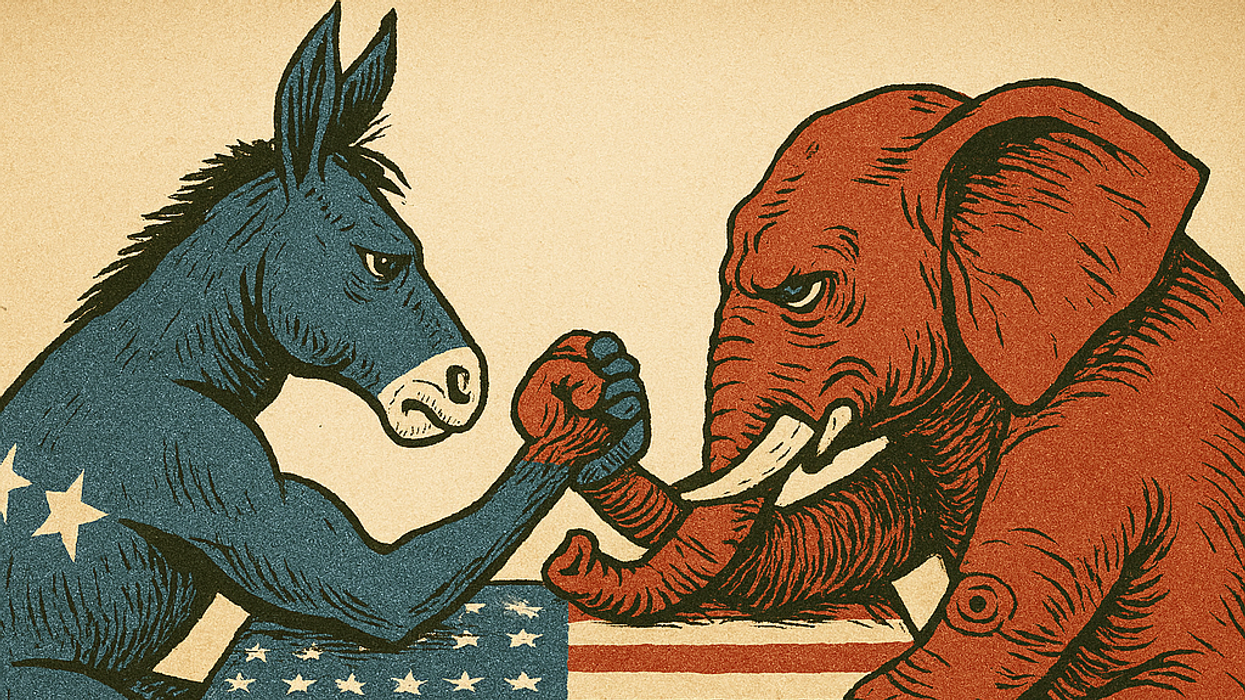Welcome to the Fulcrum monthly Roundtable, where we share insights and engage in discussions with Fulcrum's collaborators on some of the most pressing topics.
Consistent with the Fulcrum's mission, this program aims to share diverse perspectives to broaden our readers' viewpoints.
In recent months, gerrymandering has resurfaced in national headlines as several states prepare to redraw congressional maps ahead of the 2026 midterm elections. Texas led the charge with a newly signed map targeting five Democrat-held seats, prompting similar moves or legal challenges in states like California, Ohio, Utah, and Missouri.
Gerrymandering is the practice of manipulating the boundaries of electoral districts to favor a particular political party, group, or demographic.
I spoke with two of the Fulcrum's collaborators about the controversial practice that undermines democratic principles by allowing politicians to choose their voters instead of voters choosing their representatives.
Austin Sarat is the William Nelson Cromwell professor of jurisprudence and political science at Amherst College.
Giuliana Perrone is an Associate Professor of History at the University of California, Santa Barbara.
- YouTube youtu.be
Giuliana wrote: Texas Redistricting Showdown: Why the Fight Over Five GOP Seats Reveals a Broken System. She told us about the battle over mid-decade gerrymandering, which exposes deep flaws in congressional representation.
"So, there is a gerrymandering problem that exists irrespective of when we do it, but in this particular instance, Texas has decided to do a redistricting mid-decade," said Giuliana. "Typically, redistricting happens after each census because the Constitution requires that reapportionment take place after each census." She says that there is a clear indication that this is about politics, especially given that President Trump said republicans are "entitled to five more seats" in Texas and called for the state's congressional district map to be redrawn to achieve that goal.
"But the structural problem of gerrymandering as a practice exists every time we redistrict," said Giuliana. "In some states more than others. The way that we apportion representatives is not equitable, given some of these deeper structural flaws."
Austin has written several stories on gerrymandering, but none struck a chord like Why Blue States Had Better Get Busy Gerrymandering.
In the column, he argued that Democrats can no longer afford to heed Michelle Obama's famously wise advice to "When they go low, we go high."
"Democrats need to understand that the house is on fire. The normal rules may lead us to a situation in which the constitutional republic itself is in danger," he said. "You can't get to democracy democratically, but you can end democracy democratically."
Austin explained that he believed the response to Texas is a way for "blue for blue states" to try to preserve a republican form of government at the federal level, because the existence of Article Four of the Constitution presupposes that form of government. "You're not going to guarantee a republican form of government to the states if you don't have it at the federal level," he said.
"So, I think that the gerrymandering that may happen in California, Illinois, or some other blue state is not just normal partisan shenanigans; it's almost a constitutional duty in order to preserve the constitutional republic," he continued.
Giuliani agreed, "You have to win the battle if you want to continue fighting the war for democracy. So, in the short term, using the tools that you have to maintain the republic is in fact an essential obligation. Yes, we would like ultimately to have a more democratic, more equitable form of representation, but that actually has to be sort of be put on the back burner when the house is on fire if you want to live to fight another day."
"Lincoln did a lot of things that were questionable because the immediate necessity required it if he was going to save the Union," said Giuliana. "None of us are saying we should pursue this route (gerrymandering) simply as a fighting fire with fire. It is much more nuanced than that.”
The redistricting wave has been described as “unprecedented” by experts like Kareem Crayton of the Brennan Center for Justice, who noted that the 2019 Supreme Court decision in Rucho v. Common Cause effectively removed federal oversight of partisan gerrymandering, giving states free rein to reshape districts for political gain.
As litigation unfolds and political maneuvering intensifies, the nation finds itself in what one expert called “an interesting purgatory,” with the shape of future representation hanging in the balance.
Hugo Balta is the executive editor of the Fulcrum and the publisher of the Latino News Network.




















